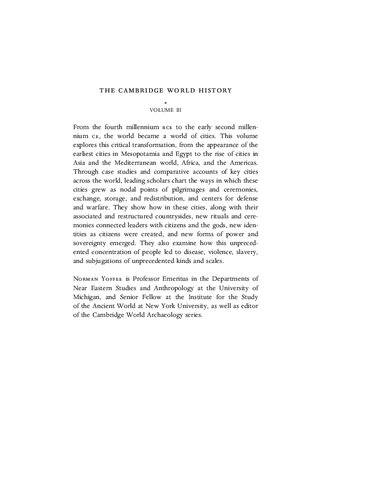

Most ebook files are in PDF format, so you can easily read them using various software such as Foxit Reader or directly on the Google Chrome browser.
Some ebook files are released by publishers in other formats such as .awz, .mobi, .epub, .fb2, etc. You may need to install specific software to read these formats on mobile/PC, such as Calibre.
Please read the tutorial at this link: https://ebookbell.com/faq
We offer FREE conversion to the popular formats you request; however, this may take some time. Therefore, right after payment, please email us, and we will try to provide the service as quickly as possible.
For some exceptional file formats or broken links (if any), please refrain from opening any disputes. Instead, email us first, and we will try to assist within a maximum of 6 hours.
EbookBell Team

4.0
76 reviewsFrom the fourth millennium bce to the early second millennium bce, the world became a world of cities. This volume explores this critical transformation, from the appearance of the earliest cities in Mesopotamia and Egypt to the rise of cities in Asia and the Mediterranean world, Africa, and the Americas.
Through case studies and comparative accounts of key cities across the world, leading scholars chart the ways in which these cities grew as nodal points of pilgrimages and ceremonies, exchange, storage, and redistribution, and centers for defense
and warfare. They show how in these cities, along with their associated and restructured countrysides, new rituals and ceremonies connected leaders with citizens and the gods, new identities as citizens were created, and new forms of power and sovereignty emerged.
They also examine how this unprecedented concentration of people led to disease, violence, slavery, and subjugations of unprecedented kinds and scales.